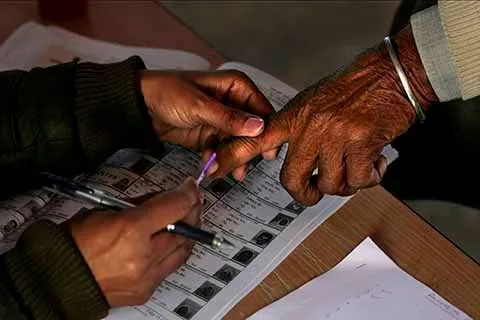The year 2024 is bound to go in the annals of history as an election year with dozens of countries across the globe witnessing elections. The political landscape of South Asia will witness four important elections. Besides India, Pakistan, Bangladesh and Sri Lanka will go for general elections. However, a pressing concern remains: Will these elections in our neighboring countries be fought democratically, ensuring a level playing field for all political parties?
There seems very little hope vis-à-vis Pakistan and Bangladesh. The history of both these countries is littered with examples of undemocratic practices. Pakistan has experienced military coups since 1958 with none of its Prime Ministers completing a full term in office. The parliamentary democracy in the country failed to sustain or flourish under the pitch-dark military shadow. Imran Khan, the popular Prime Minister lost a no-confidence motion in April, 2022. He was not only voted out of power but has been jailed like many other Prime Ministers of the country.
Next month, Pakistan is going to elect a new Prime Minister. However, the way things are unfolding in the country seems that the current caretaker administration has many anti-democratic tricks up its sleeve. The new year for the democracy of Pakistan has begun on a rather sad note. On January 1, the Election Commission of Pakistan barred Khan from contesting election owing to his conviction for “moral turpitude”. The nomination papers of many Pakistan Tehreek-e-Insaaf Party (PTI) and some Baloch leaders were also rejected. An unfair election could not only undermine the shaky democratic institution of Pakistan but is set to unleash a political bedlam in the country.
Bangladesh, on the other hand, is going to hold its parliamentary elections from January 7. The country has been witnessing democratic downslide for the last many years. It is again set to go for a one-sided vote with the key opposition party Bangladesh Nationalist Party (BNP) led by Khalida Zia and its allies boycotting the elections. The opposition camp reiterated its demand of holding the elections under a caretaker government (CTG) instead of the incumbent Prime Minister Sheikh Hasina. Over the past few years, Bangladesh made significant progress on the economic front with its garment industry attracting the international market. The country has also witnessed an improvement in standard of living. However, the political analysts termed this as ‘development without democracy’. The crackdown on opposition parties continues with one-sided vote emerging as standard practice of Hasina’s Awami League. The government pulls all the stops to curb the political dissent. Of late, at least 20,000 workers belonging to opposition political parties had to face detentions.
Recently, 83-year-old Nobel peace laureate Muhammad Yunus was sentenced to six months in jail. Additionally, the journalists are being bullied into submission and those who refuse to browbeat are booked by invoking the controversial Digital Security Act (DSA).
The shameless manipulation of the electoral process, diminishing political rights and stifling political dissent reflect the democratic recession that both Bangladesh and Pakistan will continue to face in 2024. Again, we hope that the killings stop in Palestine and they no longer dominate the news cycle in the new year.







